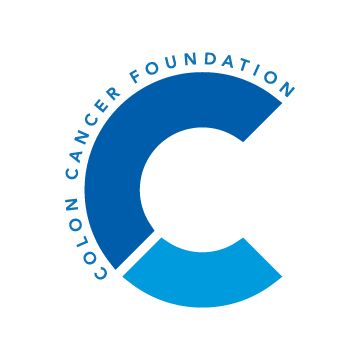
Earlier Conversations About Colorectal Cancer Can Lead to On-Time Screening

“Young people, in general, think they are invincible. I certainly did.” Said Stacy Hurt, an early-age onset rectal cancer survivor.
The statistics are scary. While rates of colorectal cancer in adults over age 50 have been decreasing steadily over the years, colorectal cancer is rising fast among the young — even affecting teenagers.
According to a 2017 study published in the Journal of the National Cancer Institute, a person born in 1990 has twice the risk of being diagnosed with colon cancer than a person born in 1950 faced at a comparable age. The risk of rectal cancer? It's four times higher.
Today, one in 10 people diagnosed with colorectal cancer will be under the age of 50, about 13,500 cases annually. Because screening does not begin until age 50 for those with no family history of the disease, many of these early-age onset cases are late stage diagnoses and that much harder to treat.
Why is this happening? While there are obvious potential factors, the answer to “why” is phenomenally tricky to pin-point. But rest assured that some of the best physicians and researchers in the world are hard at work trying to put together the pieces of this complex puzzle. Many of these brilliant minds will be sharing their latest research and scientific breakthroughs at the 4th Annual Early-Age Onset Colorectal Cancer (EAO-CRC) Summit in New York City. This singular event, founded and run by the Colon Cancer Foundation, brings together leading physicians and researchers with survivors, caregivers and advocates in a uniquely interactive two-day course that will tackle the question of “why” head-on.
One of the myriad issues surrounding the alarming rise in early-age onset colorectal cancer cases is that of communication. Young people and their physicians simply aren’t talking enough about this disease! There remains a stigma attached to colorectal cancer: that it is an “old man’s disease.” New research shows that this could not be farther from the truth. Colorectal cancer does not discriminate, and we need to start talking about it.
Fortunately, the EAO-CRC survivor community is full of passionate and determined people who are raising awareness by sharing their remarkable stories. One of these advocates is Stacy Hurt, Strategic Partnership Manager at the Colon Cancer Coalition. Here, Stacy tells her story and makes the case for the necessity of earlier conversations about this disease.
Colon Cancer Foundation (CCF): Tell us about your diagnosis.
Stacy Hurt: I was diagnosed on my 44th birthday (Sept. 17, 2014) with Stage 4 rectal cancer. A colonoscopy revealed an 11-cm tumor in my rectum so large that the gastroenterologist could not get the scope around it to view the rest of my colon. He aborted the procedure and sent me for a PET/CT scan that revealed very aggressive cancer in my liver, both lungs and lymph nodes; 27 places in total. The oncologist at UPMC Hillman Cancer Center was “hoping that I would just get a little bit of time with my family.” Chances of beating it were slim to none. After 55 chemotherapies, two surgeries, and stereotactic body radiation therapy, I am NED (“no evidence of disease”).
Did you have symptoms that went unchecked or ignored by your physicians because of your young age?
No — it was actually me who ignored my symptoms. I had no history of colon cancer in my family. I am a lifelong athlete, very fit, non-smoker, with an overall healthy lifestyle. There was no reason to think that I would have cancer, yet alone colon cancer, which I thought was an “old man’s, obese person’s disease.” I just thought that the bright red blood in my stool was from internal hemorrhoids. With two young children (one of whom is severely disabled) and a robust career, going to the doctor was an inconvenience. My abdominal pain and fatigue became too much to bear, so I finally went. I am grateful for a thorough primary care physician who sent me for a colonoscopy. Colorectal cancer was the last thing anyone ever expected.
What will you tell your children, and when, about knowing the signs and symptoms of EAO-CRC?
I was honest with my children from day one of my diagnosis (even though my special needs son doesn’t understand). I have spoken at my older son’s middle school (grades 6, 7 and 8) about being in tune with your body and telling your parents or your doctor if anything is abnormal with your body; even if it’s something that you may be ashamed to talk about, like poop. Poop is as natural a part of your body as blood, and it tells a lot about how your body is functioning.
What do you think is the best way for CCF, CURE, and other organizations in this space to spread the word about EAO-CRC?
We need to go where young adults are (on social media, college campuses, technology-oriented workplaces) and get a message out there. Young people in general think they are invincible. I certainly did. I was in the prime of my life enjoying my family and my career. We all need to slow down, get off of our devices, and get on to healthy habits. We have one body — we should do everything we can to identify our risk factors of colorectal cancer and take charge of the ones we can control. And for people like me who were doing all of that and still got colorectal cancer, do not view a trip to the doctor as an “inconvenience” – view it as a once a year “tune up” for another 50,000 miles of enjoying life! One hour out of your day to see the doctor sure beats countless hours of chemotherapy, surgeries, pain, recovery, hospital stays, infection, tears and turmoil.
For more information about the 4th Annual EAO-CRC Summit and to register:




